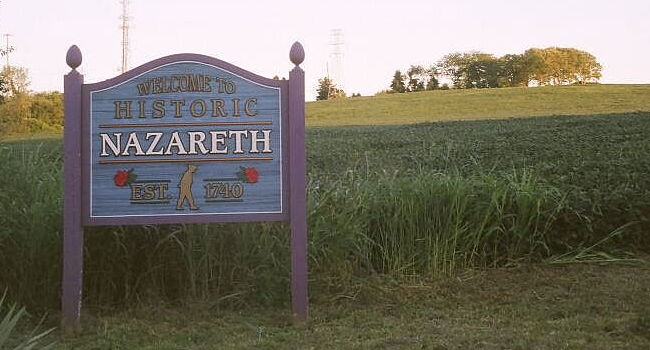During their meeting on Tuesday, August 11, the Allen Township Board of Supervisors heard the opening arguments in an appeal case that stemmed from the rejection of a development plan in 2018.
Jamie Kratz, attorney for Kay Krapf of K & H Development, alleged that township manager Ilene Eckhart, former township engineer Robert Cox, township solicitor Lincoln Treadwell, and former board of supervisors chairman Larry Oberly “conspired” to reject plans for a 40,000 square foot industrial flex property on Savage Road.
The township engineer, argued Kratz, drafted a plan review letter in December 2018 that prompted Eckhart to reject the plan based on “stormwater deficiencies.” Kratz said the rejection was unlawful, as preliminary plan submissions do not have to be “100 percent compliant” when it comes to stormwater management in order for them to move forward to the township’s planning commission.
Kratz named several township professionals in his opening argument, implicating all of them in an alleged conspiracy. The biggest player was former board of supervisors chairman Oberly, he said. Oberly was against the development because it sat across from his home. After running a campaign against development and ultimately winning, Kratz said Oberly worked with the board to rezone township land. One of the parcels rezoned following a motion in 2018 was the Krapf property, changing it from an industrial zone to a residential zone. All rezoning went into effect on Jan. 1, 2019, a month after the township’s “unlawful” rejection of the industrial development.
“The board [of supervisors] needs to wake up here,” Kratz said. “[They] have been misguided.” He further threatened a possible civil rights lawsuit.
John Mahoney is representing the township in this appeal case. He argued that the plan was never rejected because what was submitted to Cox in 2018 was an “application” for a land development plan, not the plan itself. It was “so inadequate” the engineer and township did not feel it ready to be seen by the planning commission. It was missing topographical data and soil testing. After the rejection, the township returned the developer’s application fee.
“A novice engineer would have made the same decision,” Mahoney said. He also stressed that Oberly never got to see the plan because it was rejected before it made it to the board. He further added that Oberly recused himself from the zoning amendment vote in 2018, though he did not have to under the law.
“Even though you advocate a position in a campaign, you do not have to recuse [yourself],” Mahoney said. “But he did.”
It will be left up to the board of supervisors, represented by their own independent attorney Tom Dinklelacker, to determine whether the Krapf plan was unlawfully rejected.
What they will have to ultimately decide on is whether the rejection letter drafted by Cox was a “determination” or a “report.” A determination is a final action by an officer or party that would make the rejection lawful. A report is simply “guidance.”
Kratz said the rejection letter was a report, and his stance is supported by retired judge Emil Giordano. He was an independent judge who heard evidence in the case in 2019. He recommended that the board adopt his decision.
Meanwhile, Mahoney argued that the rejection letter was a determination because it concluded the review of the plan.
The board had no questions after the nearly two hours of back and forth opening statements, but they will meet in executive sessions with their own counsel to discuss further. A decision will be made on Sept. 8, 2020.









